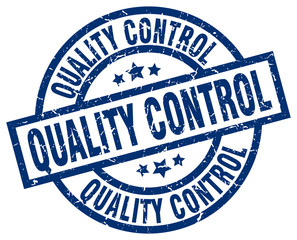
by John McCarthy Consulting Ltd. | Jun 29, 2020 | Blog, News
Does your ISQC1 Audit Quality Control Manual deal with:
• Root Cause Analysis(best practice developments following cold file reviews) and
• Section 934 I (3) of the Companies Act, 2014 – as introduced by the Companies (Statutory Audits) Act, 2018 from 21 September 2018, dealing with reporting systems within audit firms to allow audit personnel make reports of relevant contraventions under the Companies Act, 2014?
If not, then take a look at the latest June 2020 edition of our ISQC1 Audit Quality Control Manual for only €150+VAT. Available here for immediate download.
The Manual enables audit firms to comply with the latest audit quality control requirements and has a template to comply with the 2016 edition of the International Education Standard 8 (IES 8) – the standard that addresses the ongoing education (CPD requirements) of Responsible Individual auditors.’
Other up to date template letters of engagement/representation (including many dealing with COVID-19) are available at our online store

by John McCarthy Consulting Ltd. | Mar 31, 2020 | Blog, News
Following the announcement by the Taoiseach, on the 27th March, all non-essential workers must stay at home and only travel for work if absolutely necessary. This means disruption to 31st March stocktake attendance by auditors.
It’s unclear how popular a 31st March period end is in Ireland. It tends to be more popular in the UK, due to its proximity to the end of the income tax year of 5 April, so UK auditors may have bigger headaches with this issue than Irish auditors.
However, if stocktake attendance does not affect you right now, it will inevitably affect stocktakes in the months to come, so be prepared and plan ahead.
Even if you can justify attendance at the stocktake as ‘essential’ work, there are likely to be problems as client staff struggle to get prepared on time to make the stocktake as effective as it usually is under ‘normal’ conditions, along with other logistical problems.
What can be done?
Let’s see what the standards say.
‘ISA (UK) 501 Audit Evidence – Specific Considerations for Selected Items’ requires the auditor to attend a stock take where stock is material. Paragraph 6 says:
‘If the auditor is unable to attend physical inventory counting due to unforeseen circumstances, the auditor shall make or observe some physical counts on an alternative date and perform audit procedures on intervening transactions.’
This presents a few different options for auditors to consider:
1.The client could consider extending their accounting period to later in the year, to say 30 June 2020 (assuming they have not already extended their accounting period in the last 5 years). This could be a once-off change, as the period could be shortened again back to 31 March 2021.
2. Keep the 31 March date, but rather than attending the stock count at the year end date, a stock count is performed later in the year and the numbers rolled back. The rolling back process involves additional procedures that must be carried out to obtain evidence about the movements between the count date and the year end. This is similar to the exercise that must happen whenever an auditor is appointed to a new audit client (that holds stocks) after the client’s period-end has passed. The roll-back is especially important where the client wants to help avoid a scope limitation modification in their audit report (e.g. to avoid breaching a bank covenant).
Perpetual stock systems with strong controls in place obviously make performing such procedures much easier. If the client is closed due to the coronavirus outbreak, the rollback procedures should be pretty easy, as there should be minimal inventory movement.
3. Where accompanying roll-back procedures cannot be performed at the post year-end stocktake, because the client’s records are unable to provide sufficient evidence over the existence of stock as at the year end, a qualified opinion is much more likely to arise from a limitation of scope.
This may present added difficulties as there may be implications under the Companies Act, 2014, to do with whether the company has maintained ‘adequate accounting records’ (stock records) under Section 282 Companies Act, 2014, thus triggering an additional audit qualification on this topic, and additional reporting to the ODCE under Section 286 Companies Act, 2014.
4. Depending on the nature of the client’s stock and whether anybody is actually working at the warehouse, the use of video calling (e.g. Zoom, Skype or Facetime) or the hire of a drone (check with Damian Heslin at Drone Works Ireland in Galway) could be considered, to provide some additional level of audit assurance. Drones could also be used to check on the physical existence of buildings, forestry, livestock etc.
Good sources of guidance on this topic are available on the various audit issues surrounding the coronavirus:
- Auditing implications of the coronavirus at this link @ Chartered Accountants Ireland
- FAQs for auditors regarding coronavirus at this link @ Chartered Accountants Ireland
- The limitation of audit scope at the Institute of Chartered Accountants in England & Wales ICAEW. The latter site gives useful information for general guidance though they contain references to UK company legislation.

by John McCarthy Consulting Ltd. | Oct 14, 2019 | Blog
In a rare speech, Sir Donald Brydon, chair of the Future of Audit in the UK, told a packed conference room that he is a little troubled at the current mood that ‘reaches for a shotgun aimed at auditors every time there is a corporate problem’.
Speaking at the first ICAEW Audit & Assurance Faculty Audit Conference on 4 October 2019, Brydon, former chair of the London Stock Exchange, stressed the importance of balancing the responsibility and the blame for company failures between auditors, audit committees and company boards.
Ultimately, Brydon said it was directors and their actions, not auditors, that should be to blame for recent audit failures. He did not name any names but recent failures like Carillion and BHS have likely triggered this response along with other reviews.
The Brydon Future of Audit review, an independent UK government review, received 120 responses – a total of 2,500 pages of comment, while over 100 meetings and roundtables were also held to gather views.
Brydon plans to report back to the UK government on his recommendations by the end of December 2019 and all the consultation responses will be published.
In his speech, Brydon revealed that the review would seek ‘to consider how audit can become a more informative process and product whilst not losing its compliance aspect’.
Brydon insisted that it was not his intention to ‘redesign Western capitalism’, adding that, it was ‘important to note that many people and organisations have expressed their frustrations with what they see as, essentially, a narrow, backward looking and increasingly rules-obsessed approach to audit’.
He said that one of the respondents to the Review ‘compared the audit to a high jump, in which auditors have little incentive to do more than the minimum required to “clear the bar”. I repeat that there is a hunger for audit to be informative and not just evidencing compliance.’
But what does this mean for the future of Irish audit practices? Much of the audit standards that are implemented in the UK, soon follow suit here.
As they say, watch this space.
For more on best practice in Audit , see our up-to-date webinar here.
Also watch out for our new fully updated AML Policies & Procedures Manual June 2019 edition – includes the latest requirements of the Criminal Justice (Money Laundering and Terrorist Financing) Acts, 2010 to 2018 which came into force on 26 November 2018
For on-demand webinars on AML and developments in Investment Property Accounting, FRS 105 – part of the Company Law Update, Common Errors in FRS 102 Accounting, visit our online webinar training website. Once viewing is completed customers will receive a CPD Certificate confirming their learning.

by John McCarthy Consulting Ltd. | Apr 29, 2019 | Blog, News
Tax advocacy is now banned for all audit clients. True or False?
The answer is ‘False’.
To hear why this is false and find out what exactly are the rules surrounding an auditor helping an audit client argue a case with the Revenue Commissioners, go see our online webinar entitled Audit Update where you may download the slides and support materials, all for just €45. On successful completion, receive a CPD certificate for your newly acquired knowledge. Well done!
The webinar, which may be viewed anytime for up to a year from date of purchase, covers the following areas:
- IAASA Audit and Ethical Standards April 2017;
- Planning and independence;
- Fraud;
- Materiality;
- Analytical review and sampling;
- Fixed assets, Debtors, Stock, Bank and Creditors;
- Financial statements review;
- Law and regulations;
- PBSE, Going Concern;
- Audit report;
- The ‘Bannerman’ paragraph;
- Issues on PSD visits; and
- International Education Standard 8 (IES 8).
There are 18 other webinars on various topics – also for €45 each, or you may purchase two at the same time for €80 or five for €190.
All our webinars are accessible at any time (for 12 months from date of purchase) here.
We have also prepared, ready to use, audit engagement and representation letter templates (in Word format) for a company audit assignments, available to purchase online (bulk purchases of 5 or more templates attract a 20% discount), please click on the relevant links.

by John McCarthy Consulting Ltd. | Apr 7, 2019 | News
Charity audits are high risk, as has been shown in the recent news story about the disciplinary action against the auditors to the former charity Console.
Auditors have always been expected to have relevant knowledge corresponding to the task in hand and it’s important to have a clear understanding of the key risks involved in auditing a charity, especially because various donor agencies such as the HSE, Tusla and Pobal, to name just a few, have high expectations of what auditors can deliver.
One of the criticisms in the 2017 CRA report on Ataxia Ireland was that it ‘did not set formal objectives for the CEO and/or perform a documented appraisal of the CEO’s performance.
One of the webinars on our site helps auditors to gather their thoughts and plan an effective audit, pinpointing the likely areas of risk including:
- Cut-off
- Fraud
- Failure to report related party transactions
- Incomplete income due to failure to invoice for services rendered or records invoice issued
- Non-receipt of income due from funder
- Misapplication of restricted funds
For the answer to this and other questions on the Audit of Charities, go to our website and download the webinar on this topic for just €45. On successful completion, receive a CPD certificate for your newly acquired knowledge. Well done!
There is an accompanying webinar on the Accounting for Charities – also for €45, or you may purchase the two at the same time for €80.
All our webinars are accessible at any time (for 12 months from date of purchase) here.
For the following ready to use charity engagement letters (in Word) available to purchase online (bulk discounts for purchases of 5 or more at the same time) please click on the relevant links:










